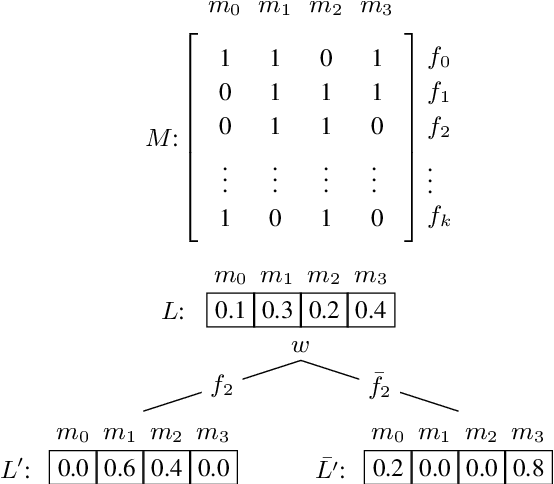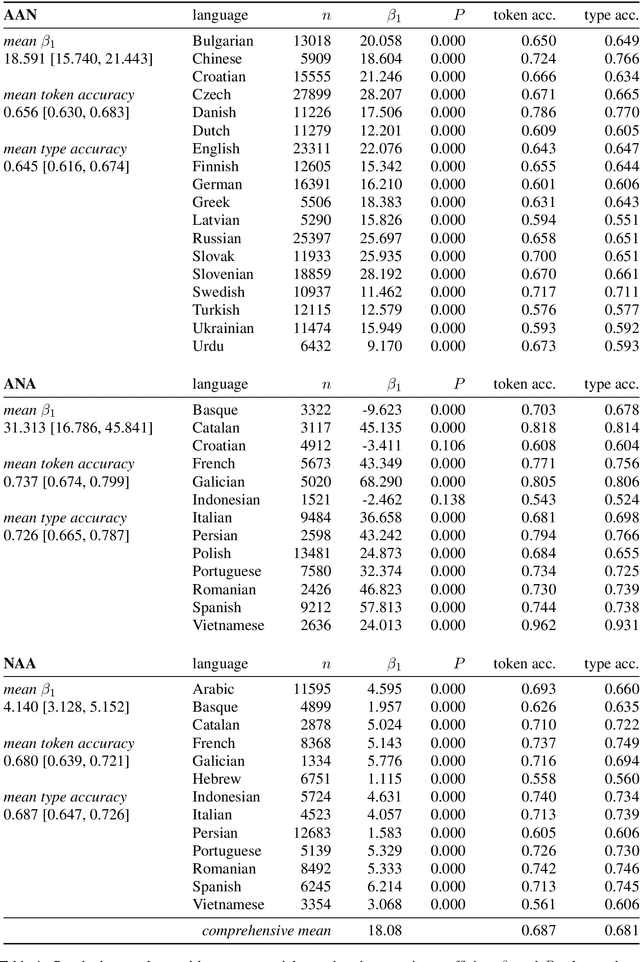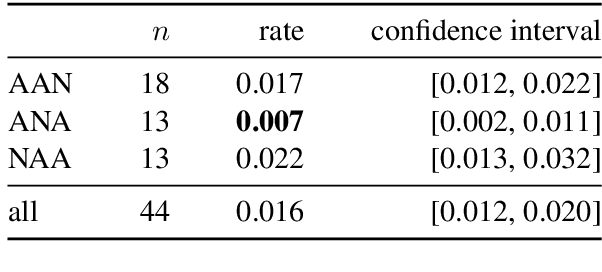Gregory Scontras
A practical introduction to the Rational Speech Act modeling framework
May 20, 2021Abstract:Recent advances in computational cognitive science (i.e., simulation-based probabilistic programs) have paved the way for significant progress in formal, implementable models of pragmatics. Rather than describing a pragmatic reasoning process in prose, these models formalize and implement one, deriving both qualitative and quantitative predictions of human behavior -- predictions that consistently prove correct, demonstrating the viability and value of the framework. The current paper provides a practical introduction to and critical assessment of the Bayesian Rational Speech Act modeling framework, unpacking theoretical foundations, exploring technological innovations, and drawing connections to issues beyond current applications.
Predicting cross-linguistic adjective order with information gain
Dec 30, 2020



Abstract:Languages vary in their placement of multiple adjectives before, after, or surrounding the noun, but they typically exhibit strong intra-language tendencies on the relative order of those adjectives (e.g., the preference for `big blue box' in English, `grande bo\^{i}te bleue' in French, and `alsund\={u}q al'azraq alkab\={\i}r' in Arabic). We advance a new quantitative account of adjective order across typologically-distinct languages based on maximizing information gain. Our model addresses the left-right asymmetry of French-type ANA sequences with the same approach as AAN and NAA orderings, without appeal to other mechanisms. We find that, across 32 languages, the preferred order of adjectives largely mirrors an efficient algorithm of maximizing information gain.
 Add to Chrome
Add to Chrome Add to Firefox
Add to Firefox Add to Edge
Add to Edge